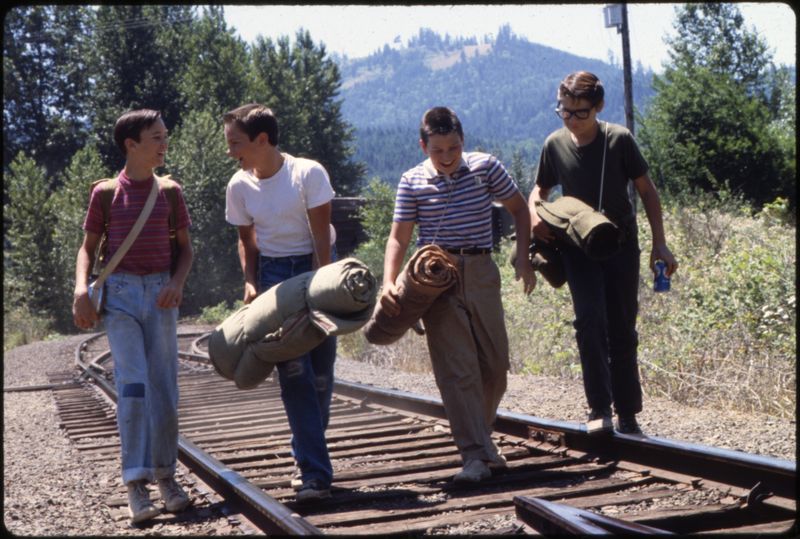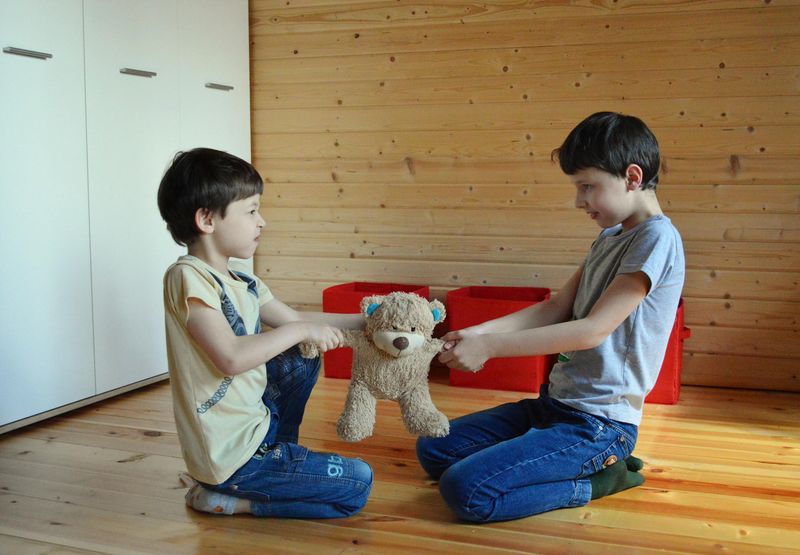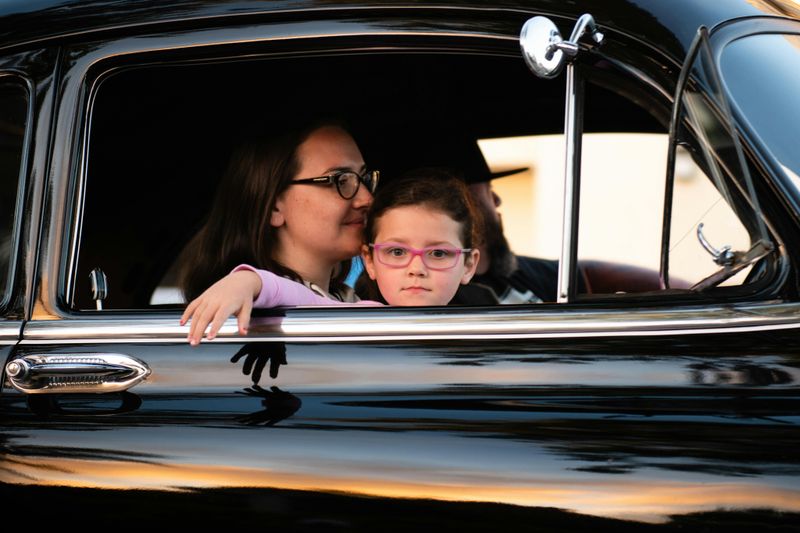13 Ways Gen X Childhoods Were Tougher (and Better) Than Today

Growing up as a Gen Xer meant living in a world where independence wasn’t just encouraged—it was expected. Parents loved us, sure, but they weren’t hovering with smartphones or orchestrating every moment of our day. We were the generation of latchkey kids, unsupervised adventures, and learning the hard way what resilience looked like.
1. Riding Bikes Until the Streetlights Came On

There was an unspoken contract every kid knew: your parents didn’t need to know where you were every second, but you’d better be home once the streetlights flickered on. That glowing signal in the evening sky was our version of a curfew.
We’d pedal through neighborhoods, across fields, and sometimes much farther than our parents realized. Helmets? Rarely. Maps? Forget about it—we just followed our instincts. The freedom was exhilarating, but it also taught us boundaries and responsibility. You had to manage time without anyone texting reminders.
That nightly race home before the lights buzzed on wasn’t just a routine—it was an adrenaline-fueled test of independence.
2. Drinking From the Garden Hose

Nothing hits quite like ice-cold water flowing from a garden hose on a hot summer day. Bottled water wasn’t a thing, and nobody worried about “BPA-free” plastic or hydration schedules. We simply turned on the spigot and gulped.
Sure, it had a faint metallic taste, maybe a little rubbery if the sun baked the hose all day, but that was part of the charm. It was quick, free, and available whenever you needed it.
No one handed us a chilled Hydro Flask; we quenched thirst on our own. Looking back, it seems hilarious how little thought went into it. But for Gen X, the hose wasn’t just a source of water—it was a symbol of scrappy self-sufficiency.
3. Walking to School Alone

Starting the day meant grabbing your backpack and heading out the door, often without a parent in sight. Sidewalks became highways of little legs marching toward school, chatting with friends, or just lost in thought.
Parents weren’t trailing behind with SUVs or worrying about traffic safety apps. We were trusted to look both ways, manage the route, and arrive on time. If it rained? Grab an umbrella. If you forgot lunch? Tough luck—you made do.
Walking to school built a kind of independence that feels almost foreign today. It wasn’t just about getting to class—it was an early lesson in accountability, problem-solving, and managing life without a protective bubble.
4. The “Latchkey Kid” Experience

Picture this: stepping off the bus, key dangling around your neck on a shoelace, and walking into a quiet house. Nobody greeted you, nobody hovered—you were on your own until your parents got home.
The fridge was your responsibility, so you learned to make peanut butter sandwiches, microwave pizza rolls, or pour yourself cereal. Homework? That was also on you. Sure, sometimes you watched TV until someone came home, but that balance of freedom and responsibility shaped Gen X in a huge way.
We weren’t coddled; we were trusted to hold down the fort. Being a latchkey kid wasn’t sad—it was liberating. It gave us resourcefulness and a sense of control over our day.
5. Settling Arguments Without Adults

When tensions flared on the playground, there wasn’t a referee blowing a whistle or a teacher swooping in every time. Disputes were handled kid-to-kid, whether through heated words, a quick scuffle, or a shaky truce sealed with a handshake.
It wasn’t always pretty, but it was real. We learned negotiation, conflict resolution, and when to stand down—all without an adult mediating. Sometimes we got it wrong, but those mistakes were part of the learning curve.
The freedom to figure out social dynamics without interference prepared us for adulthood in a way no classroom lesson could. Looking back, those raw, unfiltered interactions gave us thicker skin and a deeper understanding of human relationships.
6. No Participation Trophies

Winning meant glory. Losing meant disappointment. But there was no shiny “thanks for trying” award waiting for everyone at the end of the season. If you wanted recognition, you had to earn it.
This didn’t mean kids weren’t valued—it meant achievements actually felt like achievements. Whether it was sports, spelling bees, or science fairs, success came from effort, not entitlement. It stung to lose, but that sting was fuel.
We worked harder, practiced longer, and learned resilience along the way. Gen X understands that failure wasn’t the end of the world; it was the beginning of grit. Participation trophies? We didn’t need them—we had real victories to chase.
7. Playing Outside All Day With No Supervision

Summer days meant disappearing into the neighborhood after breakfast and not returning until dinner. Parents didn’t track us with apps or text check-ins—they just trusted us to survive the day.
We invented games with nothing but sticks, balls, and imagination. The woods became fortresses, streets became baseball fields, and bikes became race cars. Injuries happened—scraped knees, stubbed toes, the occasional broken arm—but that was part of the adventure.
Being unsupervised gave us creativity and independence that structured playdates can’t replicate. For Gen X, the outdoors was our playground, and the freedom to roam built a confidence no amount of bubble-wrapping could ever provide.
8. Limited Screen Time (Because There Wasn’t Much to Watch)

Television wasn’t the endless stream of content kids enjoy today. Cartoons were sacred Saturday morning events, and if you missed your show—too bad, no reruns or on-demand.
Most days, screens weren’t even an option. There were only a handful of channels, often filled with boring soap operas or news. That meant you had to make your own fun. Board games, neighborhood adventures, and books became everyday entertainment.
Ironically, the lack of choice gave us more freedom to be creative. When Gen X talks about “limited screen time,” it wasn’t a rule—it was simply reality. And maybe that’s why we can still appreciate silence and imagination more than younger generations.
9. Riding in Cars Without Seatbelts

The back of a station wagon or pickup truck bed was basically a rolling playground. Seatbelts were often ignored, if they even existed, and piling in with siblings, cousins, or friends was just how it was done.
Road trips meant sprawling across seats, napping on the floor, or fighting over who got the “good spot.” Nobody worried about car seats beyond the baby stage. Looking back, it seems reckless, but it was normal at the time.
That kind of casual freedom gave car rides a sense of adventure. While safety standards are far better today, Gen X can’t help but chuckle at how different things were—and how we somehow lived to tell the tale.
10. Making Phone Calls on a Landline

Staying in touch with friends required courage—you had to call their house and risk talking to their parents first. Awkward small talk with moms and dads was a rite of passage.
Once connected, you had to keep your conversation brief because someone else in the house might need the phone. And if you were really bold, you tried sneaking a late-night call on the family’s long cord, stretching it into a closet for privacy.
Caller ID wasn’t widespread, so prank calls were a favorite pastime. Landlines weren’t just about communication; they taught patience, manners, and timing. Gen X grew up understanding that connection wasn’t instant—it was something you had to earn, one ring at a time.
11. Tough Love Parenting

Discipline looked different in Gen X households. Parents weren’t overly concerned with “gentle parenting” or shielding kids from consequences. If you messed up, you faced the fallout.
Groundings, chores, or stern lectures weren’t up for negotiation. Parents expected you to learn from your mistakes and didn’t always offer a safety net. At the time, it felt harsh, but looking back, that tough love built resilience.
It wasn’t about cruelty—it was about preparing kids for a world that wasn’t always forgiving. Gen X learned early on that actions had consequences, and responsibility wasn’t optional. That approach may feel outdated today, but it forged independence and self-reliance in ways modern parenting often overlooks.
12. Fixing Boredom Yourself

Saying “I’m bored” didn’t earn sympathy or entertainment options. Instead, parents responded with “Go outside” or “Find something to do.” And so, we did.
Boredom became the launchpad for creativity. We built forts out of cardboard, made up elaborate games, or dug through closets for old toys. Sometimes, boredom just meant staring at the ceiling and letting your imagination wander.
The lack of constant stimulation forced us to create our own fun, a skill that served us well into adulthood. Gen X knows that boredom isn’t the enemy—it’s the spark for resourcefulness. Unlike today’s endless screens, we had to rely on our brains to fill the silence.
13. Learning Independence Early

Cooking mac and cheese at age eight, babysitting siblings before you were a teenager, or managing your own schedule—all of this was normal for Gen X kids.
We weren’t sheltered from responsibility; we were handed it, sometimes earlier than we were ready for. While that may sound harsh today, it instilled a confidence that carried into adulthood. Independence wasn’t just a phase—it was a necessity.
By the time we were teens, we knew how to handle money, cook meals, and solve problems on our own. Gen X grew up without constant guidance, and while it wasn’t always easy, it gave us something priceless: the belief that we could handle life, no matter what.

Comments
Loading…